- NEW DVD Series – Stone Setting with Bezels
- Tube Set Charm by Kim St. Jean
- Prong Basket Pendant by Kim St. Jean
- NEW DVD Series – Stone Setting with Cold Connections
- New DVD Series – Stone Setting with Wire
- NEW DVD Series: Introduction to Stone Setting by Kim St. Jean
- Featured Tool: Bracelet Bending Plier
- NEW Dvd by Eva Sherman
- Fun, Fast Fold Forming DVD Series
- Double Band Ear Cuff from Alex Simkin
Part 1: What Type of Wire Should I Use?
When first starting out in the wire-wrapping business, it may be a bit confusing about what types of wires to use for various projects. Here are some recommendations in choosing the temper of your wire.
How to pick the hardness of your desired wire
Hardness is the measurement of the malleability or temper of a substance. When purchasing raw materials for wire-work, you will find that wire comes in several different levels of hardness, only a few of which are commonly used by jewelers. The most typical jewelry wire can be categorized into three groups: Hard, half-hard, or dead soft.
To Find the Jewelry Wire You’re Looking For – Click Here!
Hard Wire is difficult to bend and can be stiff if trying to manipulate with bare hands. Tools are highly recommended when using hard wire for this reason. Hard wire is excellent for holding its shape and for making clasps and other findings that will likely be stressed.
Half-Hard Wire is malleable, but most people will need to use tools or jigs to bend it into shape. Half hard will; however, maintain a fairly intricate shape under moderate stress after it has been work hardened. It is very useful for light weight-bearing parts of wire-wrapped jewelry and is terrific for creating angular bends, wire loops, and for wrapping wire around itself.
Dead Soft Wire is extremely malleable and can be bent easily into a myriad of shapes by using the hands. It does not hold its shape in stress situations, such as clasps, until it is hardened. Dead soft wire is great for making loops, swirls, and spirals.
Keep in mind that the gauge (thickness) of the wire will also have an effect on its hardness. For example, a piece of 12 gauge wire is relatively thick, and even at dead soft hardness will not bend as easily as 18 gauge wire of the same hardness. Large wire is not recommended for the beginner.
If you missed out on Part 2 – Click Here to Read Now!
To Find the Jewelry Wire You’re Looking For – Click Here!





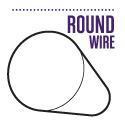
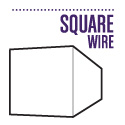

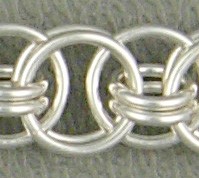
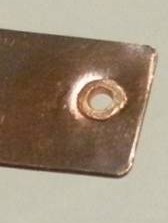
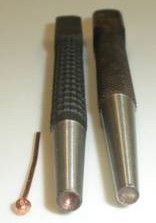
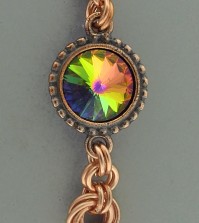

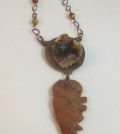
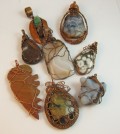

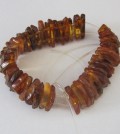

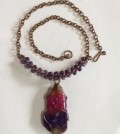
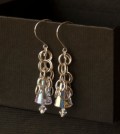
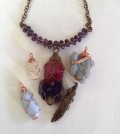
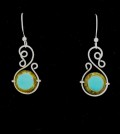
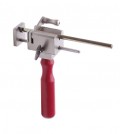
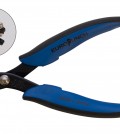
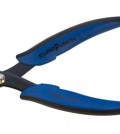
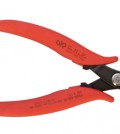
Rhoda Cataleta
April 9, 2009 at 7:47 pm
Thank you, thank you, thank you!!! This information is valuable, well written, simple, straightforward and right to the point.
yvonne gude
April 9, 2009 at 8:31 pm
Thanks so much for your wire gauge, wire use guide; appreciate it!
Porcelain Lady
April 10, 2009 at 8:45 am
This is a world of help. Thanks so much.
Dale Denison
April 10, 2009 at 11:07 am
I spoke to Alec at infusioncon and expressed my concerns about guage size etc. and am extremely happy that you have looked into correcting this issue. Bravo guys. I love all the explanations and tips. What a great help. It was a pleasure meeting you in AZ and look forward to meeting again.
Verna M. Smith
April 10, 2009 at 2:27 pm
I, too thank you for this! I have not really gone into wire wrapping because I was so confused with all the different types, etc. I am a retired nurse, and understand about gauge, but I am totally ignorant as to which type and gauge to use for what. Mucho THANKS!!!!!
Carrie Haddican
April 11, 2009 at 6:28 pm
You’ve done a great service for all of us; thank you so much. I love working with wire but always end up learning the hard way. This will help alleviate much confusion and will stop a lot of time from being wasted trying to figure things out. Thanks again!
Carrie
Nicole Conners
April 16, 2009 at 8:07 pm
Thanks so much for this i was just wondering the other day if there was a guide or your website about what gauges and hardness of wires to use for certain things….this has been a big help
Agness
April 20, 2009 at 7:32 pm
I thank You so much for this information, it was well needed for the begginers like me. Good work on this.
Pingback: What Type of Wire Should I Use
Kathie Long
May 9, 2010 at 8:24 am
You guys are lifesavers. So glad I found this site!!!
Pingback: Suggested Jewelry Wire & Jewelry Terms | Jewelry Making Instructions